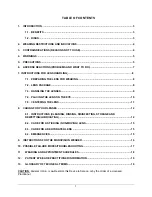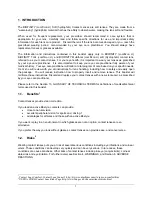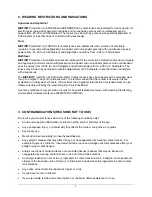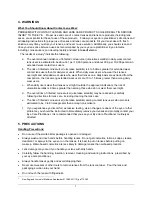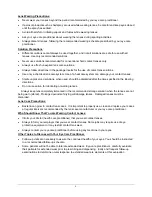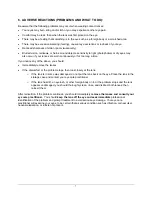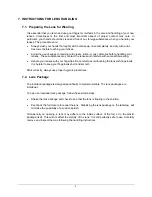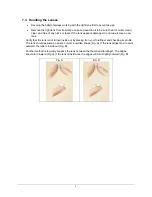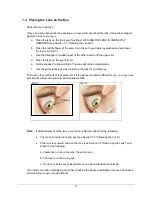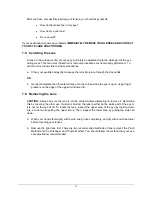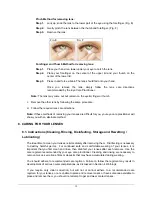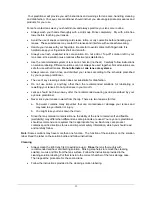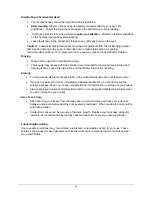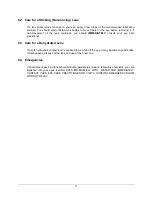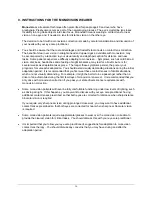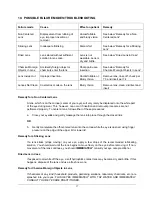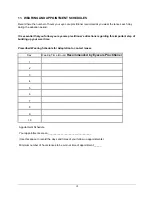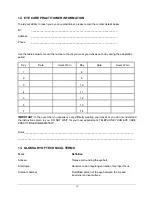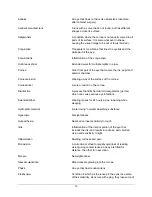
5
4. WARNINGS
What You Should Know About Contact Lens Wear
:
PROBLEMS WITH CONTACT LENSES AND LENS CARE PRODUCTS COULD RESULT IN SERIOUS
INJURY TO THE EYE. Proper use and care of contact lenses and lens care products, including lens
cases, are essential for the safe use of these products. Follow your eye care practitioner’s directions and
all labeling instructions for proper use of lenses and lens care products. Fill your lens case with fresh
solution every time you store your lenses, and never re-use solution. Additionally, you should clean and
rinse your lens case between uses as recommended by your eye care practitioner. Eye problems,
including corneal ulcers, can develop rapidly and lead to
loss of vision
.
The results of a study
3
indicate the following:
a. The overall annual incidence of infected corneal ulcer (ulcerative keratitis) in daily wear contact
lens users is estimated to be about 4.1 per 10,000 persons and about 20.9 per 10,000 persons in
extended wear contact lens users.
b. The risk of infected corneal ulcer (ulcerative keratitis) is 4 to 5 times greater for extended wear
contact lens users than for daily wear users. When daily wear users who wear their lenses
overnight and extended wear users who wear their lenses on a daily basis are excluded from the
comparison, the risk among extended wear users are 10 to 15 times greater than among daily
wear users.
c. When daily users wear their lenses overnight (outside the approved indication), the risk of
ulcerative keratitis is 9 times greater than among those who do not wear them overnight.
d. The overall risk of infected corneal ulcer (ulcerative keratitis) may be reduced by carefully
following directions for lens care, including cleaning the lens case.
e. The risk of infected corneal ulcer (ulcerative keratitis) among contact lens users who smoke is
estimated to be 3 to 8 times greater than among non-smokers.
f.
If you experience eye discomfort, excessive tearing, vision changes, redness of the eye or other
problems, you should be instructed to immediately remove your lenses and promptly contact your
Eye Care Practitioner. It is recommended that you see your Eye Care Practitioner routinely as
directed.
5. PRECAUTIONS
Handling Precautions
:
•
Do not use if the sterile blister package is opened or damaged.
•
Always wash and rinse hands before handling lenses. Do not get cosmetics, lotions, soaps, creams,
deodorant, or sprays in the eyes or on the lenses. It is best to put on lenses before putting on
makeup. Water-based cosmetics are less likely to damage lenses than oil-based products.
•
Lens damage may occur if you handle your lens with dirty hands.
•
Carefully follow the handling, insertion, removal, cleaning, and wearing instructions prescribed by
your eye care practitioner.
•
Always handle lenses gently and avoid dropping them.
•
Never use tweezers or other tools to remove lenses from the lens container. Pour the lens and
packaging solution into your hand.
•
Do not touch the lens with fingernails.
3
New England Journal of Medicine, September 21,1989;321(12),pp.773-783


